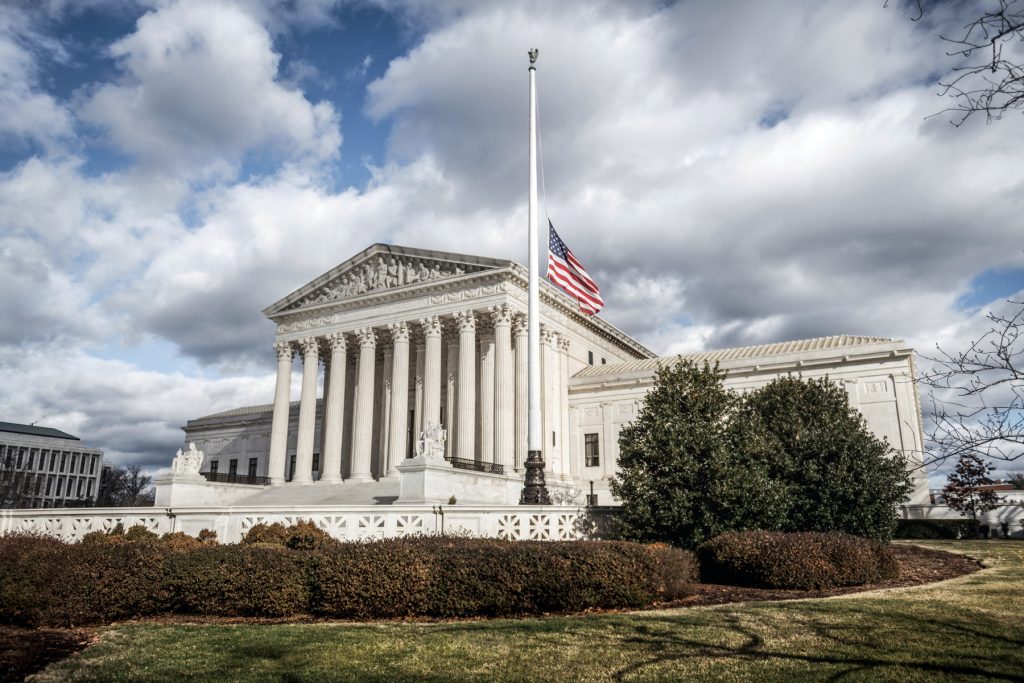By Stacy M. Brown
NNPA Senior National
Correspondent
Thirteen Republican state attorneys general have sent a cautionary letter to the CEOs of the 100 largest U.S. companies, highlighting the potential legal ramifications of using race as a factor in employment practices.
The letter follows the recent Supreme Court ruling striking down affirmative action in higher education.
It has stoked fears that the court’s ruling will extend to corporate America.
“Racial discrimination in employment and contracting is all too common among Fortune 100 companies and other large businesses,” the attorneys general wrote in the July 13 letter to the CEOs of Fortune 100 companies.
“In an inversion of the odious discriminatory practices of the distant past, today’s major companies adopt explicitly race-based initiatives which are similarly illegal.”

The attorneys continued, noting that “these discriminatory practices include, among other things, explicit racial quotas and preferences in hiring, recruiting, retention, promotion, and advancement.”
“They also include race-based contracting practices, such as racial preferences and quotas in selecting suppliers, providing overt preferential treatment to customers on the basis of race, and pressuring contractors to adopt the company’s racially discriminatory quotas and preferences.”
The high court’s ruling, which declared race an inadmissible factor in college admissions, could also apply to private entities, including employers.
Additionally, the attorneys general suggested that Diversity, Equity, and Inclusion (DEI) programs might constitute a form of discrimination.
Already DE&I positions appear targeted.
Shortly after the Supreme Court’s decision, it was revealed three prominent studios and the Academy of Motion Picture Arts and Sciences had bid farewell to their top diversity executives.
And at the same time, the Academy bid farewell to Jeanell English, its EVP of Impact and Inclusion.
Academy CEO Bill Kramer created English’s role in July 2022.
Still, several experts noted that the Supreme Court’s ruling does not directly alter existing employer obligations or commitments to DEI.
Greg Hoff, associate counsel of the HR Policy Association, told PBS that the decision does not legally impact Title VII of the Civil Rights Act, which governs employment discrimination and workplace bias.
Several experts opined that the ruling pertains specifically to higher education institutions and entities that receive federal funding rather than private employers.
They emphasize that affirmative action in college admissions differs significantly from DEI efforts in workplaces, which can encompass various initiatives such as expanded outreach for diverse hires, the establishment of employee resource groups for underrepresented workers, and the reduction of bias in hiring through practices like blind applications.
David Glasgow, executive director of the Meltzer Center for Diversity, Inclusion, and Belonging at New York University’s School of Law, said in a PBS interview that opponents of DEI have been deliberately conflating affirmative action with DEI initiatives to serve their political agendas.
Glasgow emphasized that although affirmative action in the workplace is still technically legal according to Supreme Court precedent, it is still infrequent.
He suggested that if there’s a challenge to workplace affirmative action, the current court might overturn such cases, mirroring the decision made in college admissions.
However, Sen. Tom Cotton (R-Arkansas) recently sent a letter to Target’s CEO, alleging that the company’s DEI program and “racial quota for hiring” were discriminatory, citing the affirmative action ruling.
The attorneys general have expressed their intent to monitor companies’ hiring practices for employees and contractors closely.
They specifically called out several companies, including Airbnb, Facebook, Google, Goldman Sachs, Microsoft, and Netflix, for their programs to increase racial diversity in their workforce and supplier networks.
Despite the forceful nature of the letter, only about half of the nation’s Republican attorneys general signed it, while Democrats have criticized the Supreme Court’s decision on affirmative action.




